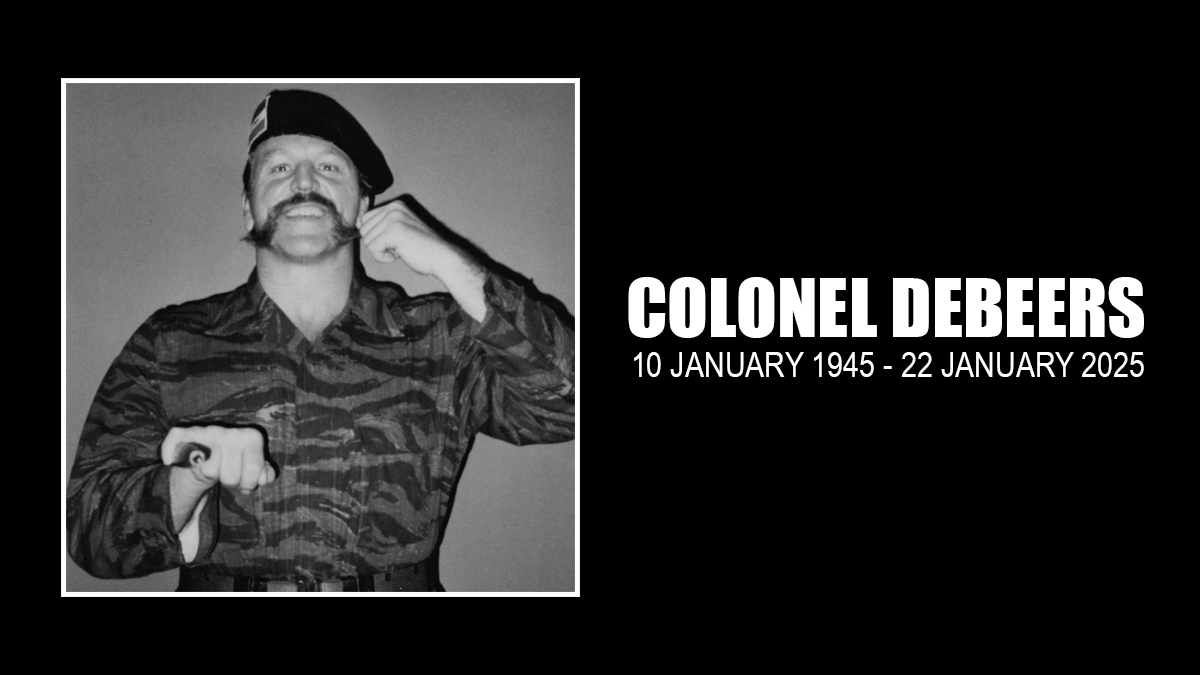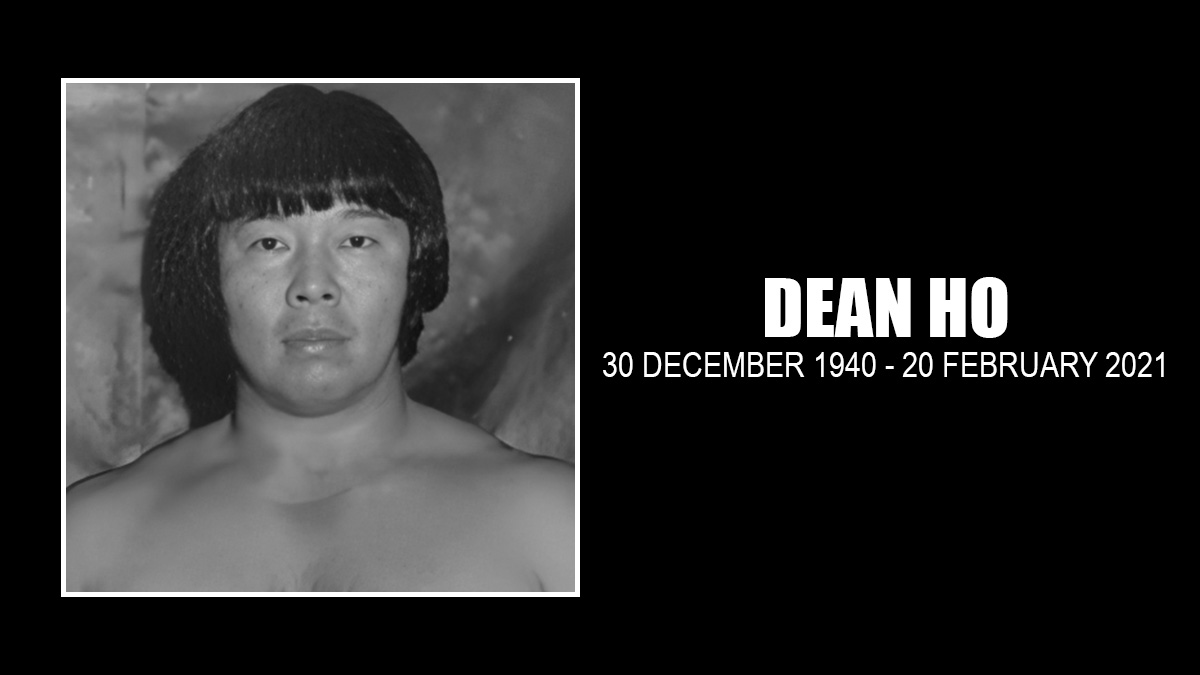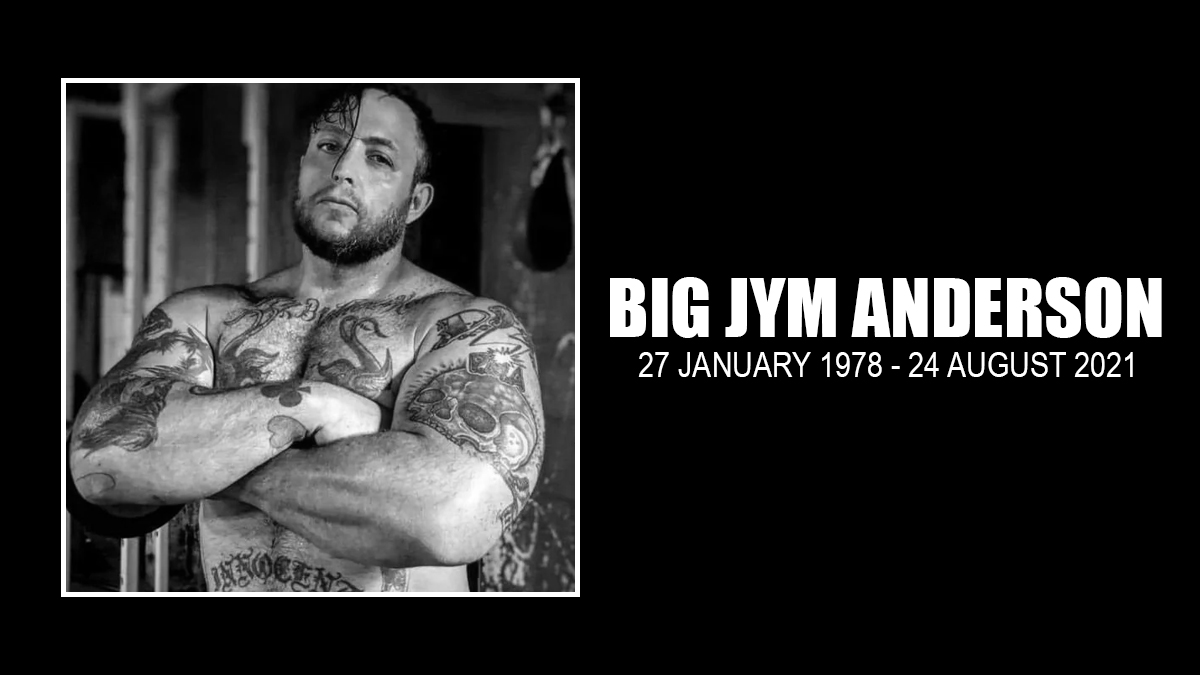Ed Wiskoski, who gained late-career fame as the Colonel DeBeers character in the dying days of the AWA, has died. He was 80.
A Facebook post on the Pebble Creek Softball league site noted his death:
William “Ed” Wiskoski (aka The Colonel) passed away on January 22nd following a short reoccurrence of an illness. He was formerly a professional wrestler known as “Colonel DeBeers”, but more recently a player and teammate for a few years in our League.
Born on January 10, 1945, in St. Joseph, Missouri, he was a stud of an athlete.
But first it’s important to address his Polish roots, which eventually led to him becoming “The Polish Prince.”
Wiskoski would laugh when asked about his Polish heritage, saying that he only knew Polish “obscenities that were not appropriate for prime time.”
“My parents forbid the language to be spoken except at large family gatherings, which happened twice a year. Both my parents spoke broken English, and most Polacks tried to cover their tracks by changing their name,” Wiskoski told Kurt Nielsen. “I did not know my grandfather’s real name until I was 16, as he was always introduced as Fred Wilkens. When he died I discovered he was really Stanislaus Wis(alphabet), which was too much for would-be employers to spell. He changed his name to Wilkens so as not to be a Polack. I suppose this had some impact on my keeping my name intact. But as Popeye says, ‘I am what I am.’ I ‘was what I was’: a high school football player who, like most other Polish kids, got a kick out of hearing his name over the loud speaker and radio in that Midwestern town.”
After attending Central High in St. Joe (as it was always called), where he was a tackle, he went to Northwest Missouri State University. Wiskoski seemed destined for the NFL, after earning all-Missouri Intercollegiate Athletic Association honors. The 6-foot-3, 250-pound Wiskoski also lettered in track and field, and earned a bachelor of science degree.
“I lasted as long as a fart in a hurricane in the NFL,” cracked Wiskoski, who never made it to a starting roster.
The success locally meant something though, and local wrestling promoter Gust Karras suggested Wiskoski try pro wrestling.
“I had a name that was known because of my football experience,” said Wiskoski.
“Gust came to me asked me about getting into wrestling. At the time, I said, ‘Nah, I don’t think it’s what I am interested in.’ Then everything fell apart, and I went back to him and said, ‘Hey, what about this shit?’ He said, ‘I’ll get Ronnie Etchison to train you,'” recalled Wiskoski, who had tried teaching high school.
Etchison was one of his trainers, but Harley Race and Lord Littlebrook were two others. “I worked out with the midgets and a girl wrestler named Kay Noble, who could do shit men at that time would not attempt and she could really work,” said Wiskoski.
A car accident derailed Wiskoski’s early wrestling career, which started in 1972, but he was back months later.
He was “Easy” Ed Wiskoski initially.
“When I was wrestling as Easy Ed I could work a bit if I had someone to lead me,” Wiskoski explained. He got a push fairly quickly locally. “I won the Central States championship in May of 1975 and was getting prepared to make my debut in St. Louis, which was one of the top wrestling towns in the United States at that time. I drove all night to St Louis from Wichita to do three TV tapings between July and August –- the hottest months of the year and when there was no wrestling at the Kiel [Auditorium]. Sam Muchnick paid big bucks to get me to do a 20-minute Broadway with Gene Kiniski, who thought he was still NWA World Heavyweight champion. Thank St Stanislaus I was young and Kiniski was in his forties and unaccustomed to the heat and humidity of the Midwest, otherwise I would still be laying on the deck of the Chase Hotel.”
Muchnick, who ran St. Louis and was NWA President, told Wiskoski: “I’d like to use you in the fall, but the name ‘Easy Ed’ won’t draw me a dime.”
Wolf Wiskoski was born.
“Well, let me tell you, the Wolf starved to death around the Lexington, MO exit on I-70. I did not get rich at the Kiel, but I did have some fun with Polish girls as St. Louis has a nice population of ‘skys’ and ‘skis,’ and after all I was Wolf Wiskoski!” he laughed.
Wiskoski’s real schooling happened on the road, whether it was in Australia, where he was a tag champion with Larry O’Day, or in Japan.
Larry O’Day “was a little intense” recalled Wiskoski, adding that he was “stiff” in the ring too. But O’Day was also the promoter. By Wiskoski estimate, he made $1,000 a week, and was given $100 in expense money as well.
“The Australians didn’t even like to work with him when he was a heel,” explained Wiskoski. “‘Oh fuck, is he stiff! Shit, he hurt you!’ I worked with him. Yeah, he was stiff. Did he hurt you? Yeah. But you were paid good money. At least I was paid good money.”
Wiskoski learned a lot about the business in a hurry, and Frank Goodish — Bruiser Brody — was a mentor.
“I fought for my money, alright. I just was not like Bruiser Brody. Bruiser, he was the John Wayne of wrestling, always threatening to kick the shit out of promoters who did not pay him right,” Wiskoski said. “And as he said, ‘The phone may not ring for a while but they eventually called.’ I did not have the luxury of the number of weeks in Japan Brody had, and with two kids in private school, house payments, etc., I wasn’t about to make too much trouble. I fought with a promoter one time early on when I was not happy with my money. Next time I was gone.”
Wiskoski ended up finding a home of sorts in the Pacific Northwest, and was inducted into the Ring Around the Northwest Hall of Fame in 2009. The write-up by Mike Rodgers summed up Wiskoski’s time in Oregon, Washington and Idaho:
Ed Wiskowski had many different lives in the NW. He debuted in August of 77 in a time when the territory was packed with talent. He had a Harley Race style to him complete with a off the top rope headbutt that earned him the NW title for a very long 6 month run. During this time he also teamed with Buddy Rose to make one of the most successful teams in the NW capturing the NW tag titles on several occasions and the SF version of the world tag titles.
He returned to Portland with the name Mega Maharishi I’m Ed which was a play on a current event person in Oregon at the time. The Bagwan owned a ranch in Eastern Oregon and made the news daily. Under that gimmick he captured the tag titles with Kendo Nagasaki.
He later came back under his most famous gimmick Col. DeBeers and wrestled for many more years. He has also had a school with Buddy Rose and trained many of today’s stars.
The Mega Maharishi gimmick was all Wiskoski, based on the Rajneeshees cult in Oregon. He would ask fans for donations to the cause, like any good cult leader, and people would throw money. Mega Maharishi would make the referee pick it up. The money was all his, but “$10 or $15 was a good haul,” he recalled, adding that he would share the wealth a bit and cut in local promoter Sandy Barr and the other helpers.
He even had one fan that would send him $20 in the mail every week. “The first time, she wrote a letter, she said, ‘I’m not doing so well, so I decided to cast some of my bread on your waters,'” he added.
“Not too many people out of Oregon or Washington even knew shit about it. Wrestling fans were like, ‘What the fuck was that all about?'” he said. “It was probably one of the most fun things I’ve ever done.”
Kurt Nielsen, a great friend of Wiskoski’s and the closest thing to a biographer “The Colonel” ever had, believed in the gimmick. “In my mind, he was one of wrestling’s great missed opportunities. If he had brought Mega Maharishi to the big stage, he would have gotten over huge,” said Nielsen.
For all the heat Mega Maharishi drew — his then-wife thought for sure Ed would be killed — it was nothing compared to Colonel DeBeers.
The AWA, run by Verne Gagne, was nearing its end and a desperate promotion used a desperate gimmick.
Colonel DeBeers was pushed as a rich South African who believed in the divine right of the whites to rule the country and apartheid. Twirling his handlebar mustache, dressed in a military outfit, DeBeers was a major heel.
The Chicago Sun Times‘ Lon Grahnke tried to sum up the gimmick in 1986:
One of Gagne’s latest discoveries is Col. DeBeers, the mustache-twirling villain who will tangle with Bockwinkel . . . . Claiming to be a South African military hero who earned his rank through “bravery in the bush,” DeBeers reminds longtime wrestling observers of Ed Wiskoski [sic, is it Wiskoski or Wiskowski?], a former football player with the Cincinnati Bengals who once wrestled as the Mega Mahareeshi. DeBeers said he never heard of Wiskoski or the Mega Mahareeshi. Asked about this remarkable resemblance to those memorable figures, DeBeers replied: “I resemble many people, sir. For example, I resemble Robert Redford. I resemble Nick Nolte.” … A relative newcomer in the AWA, DeBeers has been wrestling two or three times a week since joining Gagne’s brigade in February. He helped Rose and Sommers win the tag team title by distracting the recently injured Hall [note these are references to Playboy Buddy Rose, Doug Sommers, and Scott Hall who later became Razor Ramon in the WWF.] “All Americans have trouble concentrating, sir,” DeBeers said. “Their brains are soft. The only trace of military bearing Hall may have must come from the fact that his mother consorted with sailors.”
The AWA’s Team Challenge Series put DeBeers against “The Milkman” Jake Milliman in the Great American Turkey Hunt, where the goal was to get the uncooked turkey off a pole in the corner of the ring.
“He actually did win the match, I stole the turkey from him,” recalled Milliman. The match has lived on in infamy through YouTube. “I thought, oh it must have worked out better than I thought. But I know DeBeers … don’t get me wrong, he’s a great guy, was easy to work, super light, the guy could do anything. He was a student of the game. He was a little reluctant to be the one to give me a push. He kind of regretted it, I read some of the stuff he did interviews, that he kind of regretted it because they ended up doing nothing with it. Here he looks bad because he put me over and I didn’t do anything with it.”
Wiskoski shared his take: “At that point we were working in an empty studio because Verne wouldn’t pay the cost of renting the building there in Rochester or anything else. He wore out his welcome with the Showboat and ESPN. So what he tried to do was to film the show in a studio with blue lights … They had sent some videographer down to one of those auto-wreck shows [demolition derby at the Metrodome] … they took the video guy down there to take pictures of this sold-crowd and all the reaction, so he got a lot of file footage that he used to try to produce a wrestling show. I think ESPN saw a couple of them and shitcanned that, said, ‘We’re not putting that shit on.’ It looked like a matching crowd, but they were all flat, in other words, they didn’t have any dimension to ’em.”
Indeed, the racial overtones of the DeBeers character were never subtle. He featured with the likes of “Superfly” Jimmy Snuka and Derrick Dukes, based solely on their skin color.
Subtle would never describe Wiskoski either. He spoke his mind, laughed a lot, and had no filter. A bon vivant and a jokester, he was much loved by the other deviants in the pro wrestling business.
Wiskoski and long-time tag team partner and friend “Playboy” Buddy Rose ran a wrestling school together in Vancouver, Washington.
“They were a great team. Buddy was the more colorful guy. Ed was more laid back, easy going guy. ‘Easy’ Ed, right? So the combination was very good,” said Rick Martel, a frequent rival, in The Pro Wrestling Hall of Fame: The Tag Teams. “No one worked harder on the crowd, on ring psychology, they were really good.”
His first marriage having fallen apart, and having lost contact with his children, Wiskoski moved in with a furniture saleswoman in the Pacific Northwest, Suzzanne Schultz; they later moved to the greater Phoenix area, where they lived comfortably in a gated community, happy to hang out in the pool or play softball.
Wiskoski went to a couple of Cauliflower Alley Club (CAC) reunions, including in 2004 when he was honored with a Men’s Wrestling Award. He did not attend very many fan fests at all.
When CAC President Brian Blair learned that Wiskoski was coming to a reunion, he wrote him an email in appreciation for the lessons Blair learned, when Ed was working as Derek Draper:
Long time no see but the memories are clear… so many good to great matches with you… you were there for me when I started and I will never forget the Match we had in Orlando when you held me in a front face lock for 18 minutes… I had only been working about 6 months… did not ever see this kind of psychology… you kept saying listen to me Kid… called a spot here and there and always cheated to get back into that front face lock… after 10 minutes of Boring, Boring, they got peeved so bad… one of the best “Comebacks” I ever had and the timing was unbelievable… you taught me so much Ed and I am so very grateful!!!
Over the last number of years, Wiskoski faced a variety of ailments, a body that had been beaten up through the years having given up on him. He had a kidney removed and fought cancer as well, telling this writer in 2017, “the chemo’s taken its toll. You know, good days, bad days. Some days you get up, get out of the house; some days I don’t.”
Further details on his death and funeral information is not known at this time.




